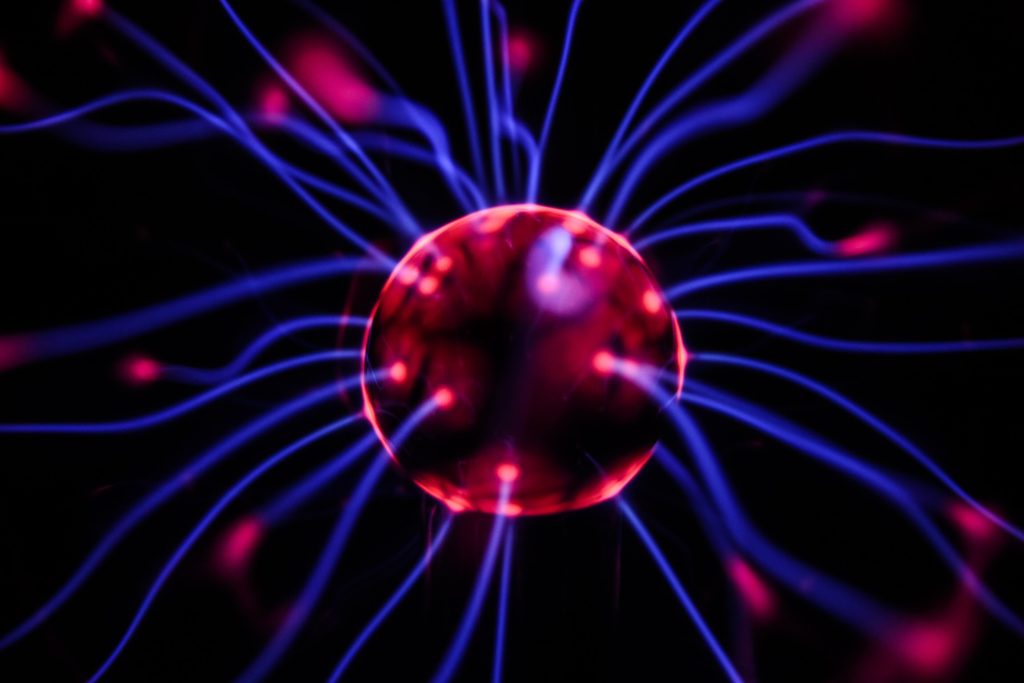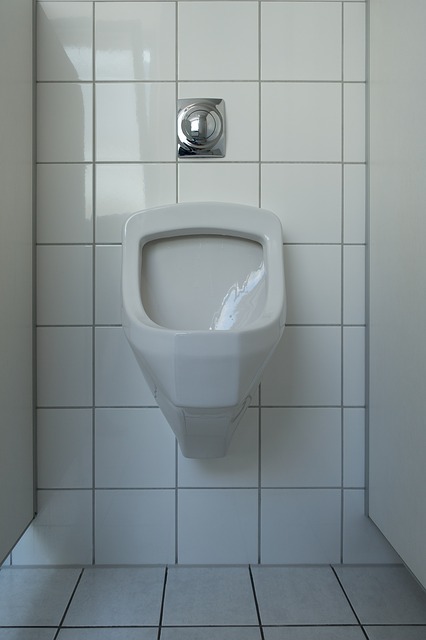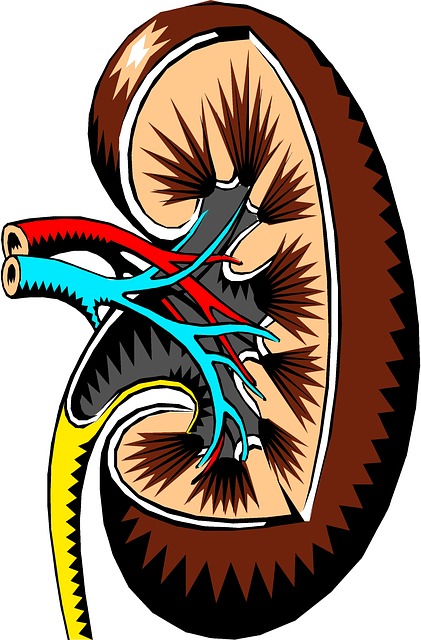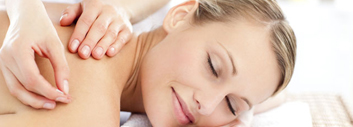Chronic insomnia affects over 30% of adult Americans, and the incidence rises with age. Cognitive therapy and sleeping medications are common forms of treatment. While sleeping drugs come with some hazards, they can be beneficial in the short term and cognitive therapy has a lot of potential as an effective cure. But using conventional methods, it is a problem that can be managed but regrettably not healed. Even while many Americans may not fit the definition of “chronic insomnia,” anyone who consistently lacks adequate sleep will eventually experience negative effects on their physical, mental, and emotional well-being. In addition to the obvious weariness that many types of insomnia cause, these conditions can also cause mood problems, headaches, dizziness, and painful muscles. According to a significant study, those with insomnia were five times more likely to experience depression than people who slept well. In addition, there are other negative consequences on the immune system, weight, cardiovascular system, and brain health.
Acupuncturists typically always ask about quantity and quality of sleep no matter the initial complaint or reason for seeking treatment. This is because as holistic health practitioners, we recognize the enormous impact sleep has on the overall health experience. If there are any deficits when it comes to sleep, this will usually be part of the focus for treatment. In Traditional Chinese Medicine (TCM), nighttime is yin time, a time for rest, healing, and recovery. It needs to be in balance with yang time (daytime) activity levels. This harmony of yin and yang is central to the TCM understanding of health.
Since everyone is unique and there are numerous causes of imbalance, acupuncture treats insomnia on an individual basis. A person’s internal environment will be examined in addition to external factors like trauma or stress. A pattern evaluation is performed to assess any organ imbalances, excess hot or cold-type diseases, and the flow and availability of blood and energy (qi) in the body. But does it work?
In a review of random controlled trials evaluating the effectiveness of acupuncture for insomnia, acupuncture was found superior to medications in its ability to increase sleep duration for >3 hours. Also, acupuncture plus medications showed a better effect than medications alone on total sleep duration. And finally, acupuncture plus herbs was significantly better than herbs alone in increasing sleep rates. Worthwhile to note that there were no serious adverse effects of acupuncture observed in any of the trials.[1]
According to Western physiology, acupuncture has an impact on our ability to sleep by causing the production of the hormone that makes us sleepy, melatonin, as well as several other yet-to-be-determined mechanisms like the activation of specific regions of the brain involved in sensory processing. Additionally, acupuncture has been shown to activate the vagus nerve, which aids in bringing about a feeling of relaxation throughout the body. Not only does the quality of sleep increase while the body is in this calm state, but it also activates the immunological and repair systems, reducing oxidative stress and inflammation in the body.
Given the interrelationship of sleep and overall health, if all acupuncture did was improve sleep, it would still merit recognition as a valuable health system. But Acupuncture is prescribed for so much more! Call today to set up a sleep and overall health-improving series of treatments and start feeling the benefits right away!
[1] https://www.ncbi.nlm.nih.gov/pmc/articles/PMC3156618/
Nearly 30% of American adults struggle with chronic insomnia, and that percentage increases with age. [1] Standard treatment includes sleeping pills and cognitive therapy. Cognitive therapy shows a lot of promise as an effective treatment and sleeping pills, though presenting some risks, can be helpful in the short term. It is a condition, however, according to standard approaches, that can be treated, but unfortunately, not cured. And while many Americans don’t meet the criteria of a ‘chronic insomnia’ label, anyone who lacks proper sleep on a regular basis will eventually suffer physical, mental, and emotional health consequences. Besides the obvious fatigue that comes along with many types of insomnia, there can be accompanying effects such as headaches, dizziness, sore muscles, and mood issues. One large study found that those with insomnia were five times more likely to suffer from depression than those who got adequate sleep.[2] This is in addition to other associated effects on brain health, cardiovascular health, immunity, and weight.
Acupuncturists typically always ask about the quantity and quality of sleep no matter the initial complaint or reason for seeking treatment. This is because as holistic health practitioners, we recognize the enormous impact sleep has on the overall health experience. If there are any deficits when it comes to sleep, this will usually be part of the focus of treatment. In Traditional Chinese Medicine (TCM), nighttime is yin time, a time for rest, healing, and recovery. It needs to be in balance with yang time (daytime) activity levels. This harmony of yin and yang is central to the TCM understanding of health.
Acupuncture takes an individualized approach to insomnia, as everyone is different, and there can be many reasons why someone is out of balance. In addition to external factors such as trauma or stress, a person’s internal environment will be looked at. A pattern assessment is done to evaluate both the abundance and flow of blood and energy (qi) in the body, excess hot or cold type disorders, and any organ imbalances. But is it effective?
In a review of randomized controlled trials evaluating the effectiveness of acupuncture for insomnia, acupuncture was found superior to medications in its ability to increase sleep duration for >3 hours. Also, acupuncture plus medications showed better effects than medications alone on total sleep duration. And finally, acupuncture plus herbs was significantly better than herbs alone on increase of sleep rates. Worthwhile to note that there were no serious adverse effects of acupuncture observed in any of the trials.[3]
According to Western physiology, acupuncture affects our ability to sleep by triggering the release of our sleep hormone: melatonin, and various other mechanisms still being studied, such as the activation of specific brain pathways involved in sensory processing [4]. Acupuncture is also known to stimulate the vagus nerve, which helps shift the whole body into a more relaxed state. When the body goes into this relaxed state, not only does sleep quality improve, but the body also turns on the immune and repair systems, cutting down oxidative stress and inflammation in the body. [5]
Given the interrelationship of sleep and overall health, if all acupuncture did was improve sleep, it would still merit recognition as a valuable health system. But Acupuncture is prescribed for so much more! Call today to set up a sleep and overall health improving series of treatments and start feeling the benefits right away!
[1] https://www.sleepfoundation.org/how-sleep-works/sleep-facts-statistics
[2] https://www.webmd.com/sleep-disorders/insomnia-21/slideshow-chronic-insomnia-health-impacts
[3] https://www.ncbi.nlm.nih.gov/pmc/articles/PMC3156618/
[4] https://www.ncbi.nlm.nih.gov/pmc/articles/PMC4265683/
[5] https://www.morningsideacupuncturenyc.com/blog/acupuncture-and-the-vagus-nerve

For most people the question we run into at Master Lu’s Health Center in Salt Lake City about acupuncture is how does acupuncture work? Chinese medicine has developed over the past 3000 years. Because Chinese medicine is so old there are many esoteric terms or terms that our modern Western minds have difficulty grasping. There are terms such as wind, dampness, phlegm, blood stasis, and qi. There are syndromes such as liver and spleen disharmony, kidney yin deficiency, taiyang disharmony, and taiyin qi deficiency. Only Chinese medicine trained practitioners would understand such terminology. So how do equate all of this with modern research and terminology?
Recently. there has been more research done on acupuncture. Researchers have found different mechanisms how acupuncture works. One of the main mechanisms how acupuncture works according to research is that it will act on the pain and will release different chemicals, hormones, and neurotransmitters such as endorphins. Acupuncture has also been shown to improve blood flow and circulation. The physiological mechanisms of how acupuncture works will facilitate your body to heal itself.
Below are some research articles and abstracts on acupuncture works according to modern research. There are several different ones. I highlighted a few articles below. If you or anyone you know would like to use acupuncture and Chinese medicine as part of their health care and naturally improve health and wellness please call Master Lu’s Health Center anytime.
The Effects of Acupuncture on Cerebral Blood Flow in Post-Stroke Patients: A Randomized Controlled Trial, Published in Journal of Alternative and Complementary Medicine https://www.ncbi.nlm.gov/pubmed/26569545
Correlation between acupoints and corresponding brain cortices using functional MRI, published in The Proceedings of the National Academy of Sciences: http://www.pnas.org/content/95-5/2670.short
Ovarian Blood Flow Responses To Electro-Acupuncture Stimulation at Different Frequencies and Intensities in Rats, published in Autonomic Neuroscience: Basic and Clinical: https://www.ncbi.nlm.nih.gov/pubmed/14614964
Effext and Mechanism of Acupuncdture on Grastrointestinal diseases. Published in International Review of Neurobiligy: https://www.ncbi.nlm.gov/pubmed/24215928
Relationship Between Regional Mast Cell Activity and Peripheral Nerve Discharges During Manual Acupuncture Stimulation of “Zusanli” ( ST 36), Published in Acupuncture Research https://www.ncbi.nlm.nih.gov/pubmed/23819213
Electroacupuncture Promotes the Regeneration of Different Fibers in Rat’s Tibial Nerve, Published in Acupuncture Research: https://www.ncbi.nlm.nih.gov/pubmed/7923723
Electroacupuncture for Reproductive Hormone Levels in Patients with Diminished Ovarian Reserve: A Prospective Observational Study, Published in Acupuncture in Medicine https://www.ncbi.nlm.nih.gov/pubmed/26964178
Effect of Electroacupuncture at Different Acupoints on Hormones and Neurotransmitters of Hypothalamic Pituitary Adrenal Axis in Rats in Simulated Weightlessness, Published in Chinese Acupuncture and Moxibustion: https://www.ncbi.nlm.pubmed/26964178
Functional MRI Study About How Acupuncture Changes Brain’s Perception and Processing of Pain Signals, Published in Science Daily, Featured in Acupuncture Today http://www.acupuncture.com/newsletters/m_jan11/acupuncturebrain.htm
Electroacupuncture Reduces the Effects of Acute Noxious Stimulation on the Electrical Activity of Pain-Related Neurons in the Hippocampus of Control and Neuropathic Pain Rats, Published in Neural Plasticity https: www.ncbi.nlm.nih.gov/pubmed/27833763
In recent years there has been an increase of research being done for the effectiveness of acupuncture for various health conditions. We would like to start highlighting some of the research that has been done. Each month we will blog about research updates. The research done on acupuncture will help you feel more comfortable about acupuncture and Chinese medicine as well as see evidence of Chinese medicine’s effectiveness. We hope that these research updates will be of value for you.
This month’s research update is about how acupuncture has been shown to be effective for bladder control. Healthcare Medicine Institute published a study that showed that acupuncture was effective for urinary incontinence. There are millions of people around the world that suffer from urinary incontinence. There could be several reasons for urinary incontinence such as age, trauma, and neurological conditions.
The research study had two groups, one that did acupuncture alone and another that added electrostimulation with the acupuncture. Both groups had significantly shown effectiveness to help control the bladder. The acupuncture alone group had a 54 percent efficacy and the acupuncture plus electrostimulation had a 86 percent efficacy.

Either way the study showed that acupuncture is effective for chronic urinary incontinence. There still needs to be more research done to make stronger conclusions.
The bladder in Chinese medicine stores and excretes urine. In fact in the Yellow Emperor’s Internal Classic, it says “The urinary bladder serves as the officer of an administrative division who takes charge of storing and excreting water (urine).” The bladder channel runs along the entire body from the head to the foot along the entire back and back of the legs. When there are urinary problems we will strengthen both the kidney and the bladder. The kidney has a strong relationship to the bladder. As we strengthen both kidney and bladder it will help with urinary incontinence.

Acupuncture is effective for urinary incontinence and will help balance your body. If you suffer or anyone has problems with their bladder, have them contact us at Master Lu’s Health Center in Salt Lake City to see how we can help

